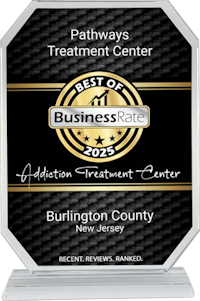Family Therapy for Addiction in Burlington, New Jersey
Recovery isn’t just individual; it affects friends and family members, too. Our family therapy services support healing across family systems, helping loved ones rebuild trust, communication, and mutual support in a structured, therapeutic environment.
Understanding Family Therapy
Family therapy is a form of psychotherapy that aims to address and mend the psychological health of family members and the relationships within the family unit. It provides families with the tools to resolve conflicts, improve communication, and deepen family connections. Through family therapy, members of the family learn to understand each other better and work collaboratively towards healing.
Techniques Used in Family Therapy
 Several techniques are employed in family therapy, each tailored to the family’s unique needs. Some of these include:
Several techniques are employed in family therapy, each tailored to the family’s unique needs. Some of these include:
- Structural Therapy: This approach focuses on adjusting and strengthening the family system by addressing its organizational structure. Therapists work to identify and alter dysfunctional patterns within the family hierarchy, roles, and rules, helping family members to develop healthier interactions and boundaries. The goal is to create a more supportive and functional family environment.
- Strategic Therapy: This method identifies patterns that lead to problems within the family and works on changing these behaviors. Therapists use specific, directive techniques to disrupt negative cycles and promote positive change. By designing and implementing strategic interventions, they help families develop new ways of interacting that reduce conflict and improve relationships.
- Systemic Therapy: Systemic therapy looks at the family as a part of larger systems, understanding influences and dynamics that affect the family’s functioning. This approach considers external factors like social networks, community, culture, and the broader societal context. Therapists aim to uncover the interconnectedness of relationships and how these external influences shape family interactions.
- Narrative Therapy: Narrative therapy encourages family members to tell their stories and find new meanings in them. This approach helps individuals separate themselves from their problems by externalizing issues and viewing them as separate entities. Through the process of re-authoring their narratives, family members can create more empowering and constructive stories about their lives and relationships, fostering a sense of agency and positive change.
Benefits of Family Therapy
The benefits of family therapy are far-reaching, especially when dealing with addiction. These can include:
- Improved Communication: Family therapy can enhance communication skills among family members. For example, parents and children learn how to express their feelings and needs more effectively, leading to fewer misunderstandings and more harmonious interactions.
- Conflict Resolution: Family therapy teaches conflict resolution techniques. For instance, siblings who frequently argue can be guided to find common ground and resolve disputes calmly, reducing tension in the household.
- Strengthened Family Bonds: Through shared experiences and collaborative problem-solving in therapy, families often develop stronger emotional bonds. For example, a family that attends therapy together might begin to enjoy more quality time and shared activities, leading to a deeper sense of connection.
- Reduced Relapse Rates: In cases where a family member is recovering from an addiction, family therapy can provide the support needed to prevent relapse. For example, family members learn how to recognize early signs of relapse and offer appropriate support and encouragement to the recovering individual.
- Better Understanding of Family Dynamics: Family therapy helps individuals understand their roles and behaviors within the family system. For example, parents might gain insights into how their parenting style affects their children’s behavior, leading to more effective and nurturing parenting strategies.

Family Therapy in Addiction Treatment
Family therapy integrates seamlessly with addiction treatment, providing a holistic approach to recovery. It addresses not just the individual struggling with addiction but also the familial patterns and dynamics contributing to it. This inclusive strategy ensures a supportive environment, critical for the recovery process.
The Role of Family Therapy in Addiction Recovery
In addiction recovery, family therapy serves multiple purposes:
- Educates the family about the nature of addiction
- Heals relationships damaged by addiction
- Creates a supportive home environment conducive to recovery
- Addresses underlying familial issues that may contribute to addiction
Impact of Addiction on the Family
Addiction affects everyone in the family, not just the individual struggling with it. It can lead to financial strain, emotional turmoil, and social isolation. Recognizing addiction as a family issue is crucial for comprehensive recovery.
Addiction: A Family Disease?
Many experts consider addiction a “family disease” due to its profound impact on the family’s structure and dynamics. It disrupts healthy communication, leads to unhealthy roles within the family, and can perpetuate the cycle of addiction across generations.
Genetics plays a significant role in addiction, with research indicating that specific genetic attributes can influence an individual’s susceptibility to substance abuse. For instance, variations in genes related to the brain’s reward system, such as those affecting dopamine receptors and transporters, can make some people more prone to addiction. Additionally, genetic factors can affect how the body metabolizes substances, leading to different levels of tolerance and dependence.
However, it is crucial to understand that genetics is only one dimension of addiction. Environmental factors, such as exposure to substance use, stress, trauma, and social influences, also play a critical role. Psychological factors, including mental health disorders and coping mechanisms, further contribute to the complexity of addiction. Therefore, while genetics can heighten the risk, it is the interplay of various factors that ultimately leads to addiction.
Spouses of individuals dealing with addiction face their own set of challenges, including emotional distress, trust issues, and financial concerns. Therapy provides them with the support needed to cope with these challenges while also strengthening the marital relationship.
Children in families affected by addiction often experience neglect, abuse, or emotional trauma. Therapy offers a safe space for them to express their feelings, understand what’s happening, and learn coping mechanisms.
Healing the Family from Addiction through Family Therapy
 The ultimate goal of family therapy in addiction treatment is to heal the family as a whole. This involves:
The ultimate goal of family therapy in addiction treatment is to heal the family as a whole. This involves:
- Restoring trust and communication: Trust and communication are the bedrock of any healthy relationship. Restoring trust involves honesty, transparency, and consistency. For example, a family might hold regular meetings to openly discuss any issues and ensure everyone feels heard. Communication skills can be improved by practicing active listening, where each person takes turns speaking and listening without interruption, thus fostering a safe space for sharing thoughts and feelings.
- Addressing dysfunctional behaviors: Dysfunctional behaviors, such as constant criticism, withdrawal, or aggressive reactions, can hinder family harmony. Addressing these behaviors involves recognizing their impact and seeking to change them through constructive approaches. For instance, a family may work with a therapist to identify triggers and develop healthier coping mechanisms, such as using “I” statements instead of blaming language to express concerns.
- Strengthening family bonds: To build stronger family bonds, it’s crucial to spend quality time together and engage in shared activities. Examples include family game nights, cooking meals together, or taking trips to create lasting memories. Additionally, showing appreciation and celebrating each other’s achievements, no matter how small, can enhance feelings of connection and support within the family.
- Creating a supportive family environment: A supportive family environment is one where members feel valued, understood, and cared for. This can be achieved by fostering empathy, practicing kindness, and being available to offer help when needed. For instance, a parent might actively involve their children in problem-solving discussions, encouraging them to share their perspectives and contribute to family decisions, thereby creating a sense of inclusion and mutual respect.
Duration of Family Therapy
The length of family therapy varies depending on the family’s needs and goals but typically ranges from a few months to a year. Consistent participation and commitment from all family members are key to success.
Other Therapy Modalities in Addiction Treatment
In addition to family therapy, various types of therapy can be instrumental in healing behavioral health issues. Here are some other therapy modalities that are commonly used in conjunction with family therapy:
This form of therapy focuses on addressing personal issues related to addiction by allowing individuals to explore their thoughts, feelings, and behaviors in a one-on-one setting with a therapist. Individual therapy helps uncover underlying issues and develop coping strategies.
In group therapy, individuals receive support and encouragement from peers who are also facing similar challenges. It provides a sense of community and allows participants to share experiences and strategies, fostering mutual understanding and support.
CBT helps individuals change negative thought patterns that contribute to addictive behaviors. By identifying and challenging these thoughts, individuals can develop healthier thinking patterns and behaviors, aiding in their recovery process.
DBT focuses on improving emotional regulation, which can be a significant challenge for those struggling with addiction. By teaching skills such as mindfulness, distress tolerance, and emotional regulation, DBT helps individuals manage their emotions more effectively.
When these therapy modalities are integrated with family therapy, the overall treatment becomes more holistic and comprehensive. Family therapy involves the individual’s family members in the treatment process, helping to address and resolve family dynamics that may contribute to or be affected by the addiction. This collaborative approach ensures that everyone in the family understands the issues at hand and works together to support the individual’s recovery.

Discover Family Therapy at Pathways Treatment Center
At Pathways Treatment Center in Burlington, New Jersey, we believe in the power of family therapy as an essential component of addiction treatment. Our comprehensive approach aims to not only help the individual recover but also to restore and strengthen the family unit.
Learn more about how our family therapy programs can support you and your loved ones on the path to recovery. Contact us today to learn more.



